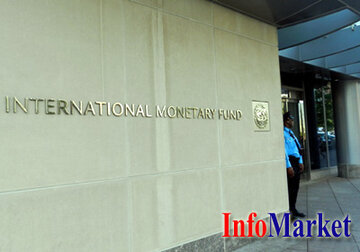
The Executive Board of the IMF has completed the second review of Moldova's financing program and is allocating it about $27 million.
According to the Fund's report, as a result, the total amount of payments to Moldova under the mixed ECF/(EFF) mechanisms will be about $275 million. IMF experts note that Moldova's prospects are still full of problems. The Moldovan economy is projected to contract by 1.5% in 2022, followed by a modest recovery of 1.5% in 2023 due to the lingering effects of the war in Ukraine and the worsening prospects of Moldova's main trading partners. Inflation is estimated to have peaked but remains high at 31.4% in November (annualized). The budget deficit is projected to widen to 6% of GDP in 2023, reflecting policies to counter the cost of living crisis and energy crisis, while the current account deficit remains driven by higher energy import costs. Risks to the outlook are high and heavily tilted to the downside, including risks of further escalation of the war in Ukraine. Fund experts point out that program implementation in Moldova remains stable, despite difficult conditions, with the fulfillment of important program commitments in the area of fiscal and financial management and reforms in the sector of state-owned enterprises. IMF Deputy Managing Director Kenji Okamura said the effects of Russia's invasion of Ukraine continue to weigh on Moldova. Energy supply disruptions put additional pressure on the economy, and high energy and food prices lead to lower living standards for vulnerable populations. As a result, the outlook for Moldova's economy is worse than forecasted at the time of the first review of the IMF financing program. "Despite these challenges, the authorities remain firmly committed to the Fund-supported program, which aims to support the vulnerable while advancing governance reforms and addressing developmental needs to create conditions for sustainable and inclusive growth. The authorities have successfully completed structural commitments on public investment management, the SOE sector reforms, and financial sector governance. The reform agenda under the program was further strengthened with the proposal of six new structural benchmarks to guide implementation of reform priorities," said Kenji Okamura. He emphasized that the program supported by the Fund has helped mobilize significant external funding to help Moldova meet urgent financing needs. "As risks remain high and the outlook is subject to extreme uncertainty, maintaining a strong policy momentum will be critical to secure additional grant and concessional financing from donors, needed to withstand the shocks, reduce reliance on expensive short-term domestic financing, and preserve fiscal sustainability. Continued reform implementation will also help Moldova create a solid foundation for strong and inclusive growth," the IMF Deputy Managing Director said. According to him, the authorities' immediate policy priorities are appropriately focused on ensuring energy security, protecting the most vulnerable from the cost-of-living crisis and preserving macro-financial stability. Going forward, maintaining the right mix of policies will be critical to counter negative risks, should they materialize, while pursuing long-term development objectives. "Continued efforts are needed to improve spending efficiency, foster budget credibility, and mobilize domestic revenue. Reforming the SOE sector needs to be accelerated to improve efficiency and contain fiscal risks, while broader governance, judicial and anti-corruption reforms would support growth," Kenji Okamura said. He noted that while the revised inflation forecast calls for carefully calibrated monetary policy easing, exceptionally high uncertainty requires constant vigilance. The IMF Deputy Managing Director welcomed the Moldovan Parliament's adoption of a law aimed at strengthening the institutional autonomy and governance of the National Bank of Moldova, stressing that ensuring NBM's independence is necessary to enhance its credibility and policy effectiveness. The new 40-month financing program for Moldova was approved by the IMF in December 2021, and in May 2022, the total lending was increased to about $826 million, of which $258 million has already been disbursed. The ECF financing has a zero interest rate with a grace period of 5.5 years and a final maturity of 10 years, while the EFF financing has an interest rate equal to the prime rate of the SDR, a maturity of 10 years and a grace period of 4.5 years. // 10.01.2023 - InfoMarket.







